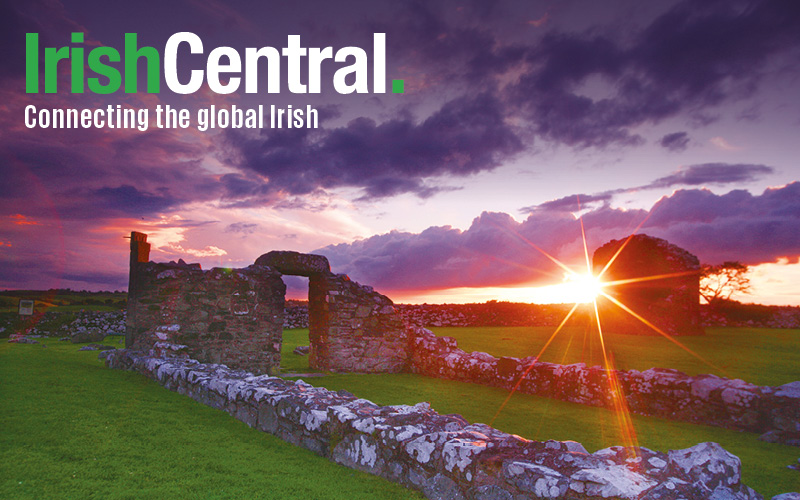LAST weekend there was an elderly couple outside the entrance to our local supermarket selling poppies. They were sitting on two fold-up chairs at a small table, on which was a tray of the red poppy flower badges.
The poppies, as you probably know, are in memory of those who died in the First World War. And they are a perfect visual emblem because the shape of the red flower pinned to your jacket mimics the blood stain that seeps through the shirt of a soldier shot in the chest.
It was a bitter afternoon and the old couple had blankets wrapped around their knees. They must have been cold but they were stoically carrying on, probably thinking that it was nothing compared to what all those who had died in the damp, freezing trenches had gone through.
You see, last Sunday, November 9, was Remembrance Sunday. It's always the second Sunday of November, the Sunday nearest to November 11 which is the day the First World War ended 90 years ago in 1918.
It's the day on which commemoration ceremonies are held, and it's the day on which members of the Royal British Legion go around selling their poppies to raise funds for war veterans. Almost all the First World War survivors are dead now, so the funds raised go to help needy Second World War veterans, some of whom are still living in retirement homes run by the Legion in Ireland.
So I went over and I put a s5 note in the collection box, and the frail old lady jumped up and pinned a poppy on my coat. Both she and her husband had been involved in the Second World War, she told me. She was a nurse and he was in the RAF.
But there were not many veterans left now, she said. Most of their friends from Ireland who had served with them were dead.
I said something about the poppies being perceived mainly as a remembrance of those who died in the First World War, and she told me that she had a connection to that war as well. Her uncle, her father's oldest brother, had been killed in the First World War. "Like so many Irishmen," she added.
I wished them well and went off to do my shopping, and she smiled after me in gratitude. The poppy collectors don't always get a positive response here, for reasons I will go into in a moment.
But first, a general knowledge question for you - which war cost the most Irish lives? Was it the 30 years of the recent Troubles in the North? Was it the 1916 Rising and the War of Indepen-dence? Or, if you want to go back in history, was it one of the many rebellions that happened over the centuries as the Irish battled against the British Crown?
Well, of course, it was none of these. The war in which the most Irishmen died - by far - was the First World War. Over 200,000 Irish soldiers fought on the British side in that war, and around 35,000 of them died, many from the north of Ireland but even more from the south of Ireland.
It was the war that took the most Irish lives. And it was the war in which Irishmen endured the greatest suffering and carried out the greatest acts of courage.
You would think, for those reasons, that their courage and all those lost lives would be commemorated here. But in fact for a long time they have been airbrushed from Irish history with an efficiency that Stalin would have envied.
They have been an uncomfortable complication in the approved history of the new Republic, a history that was refined and edited to exclude anything except the glories of the 1916 Rising and the War of Independence.
In fact the response of most Irish people was much more generous than that when the troops came home from the First World War in 1918. There were huge welcome home meetings and marches, and the commemoration day became one of the biggest events on the annual calendar for years afterwards. And, of course, many of those who had served in the First World War went on to join the army of the new Free State.
Yes, there was some trouble caused by Sinn Fein, and there was a lot of tension and confusion at the time. But most ordinary people understood that those who had fought in the First World War had done so in good faith, on the promise of Home Rule for Ireland.
Even if their position was overtaken by events and by the problems posed by the Unionists, they had served with honor for valid reasons and they deserved respect for that.
But the appreciation and tolerance that was shown to the tens of thousands who came home after the First World War evaporated in time, and particularly after de Valera came to power in 1932. From then on, there was only one history.
By the time I was in school, in a Christian Brothers school in a small town in the midlands in the early sixties, the history we were taught had no room for complications. It went through centuries of British repression before finishing with the heroics of the 1916 Rising and the War of Independence.
The Civil War that followed was not even mentioned. And John Redmond and those who had served in the First World War to further the cause of Home Rule for Ireland were presented to us as gullible fools.
That narrow version of our history was hammered into us. I can still see the brother striding up and down the classroom crying out, "England's difficulty was Ireland's opportunity!"
It would be funny had it not been so insidious. It created the mindset that led some of my generation into the Provos when the Troubles started.
This indoctrination of a singular view of our recent history went on for decades, until very recently in fact. And the failure to recognize and honor the Irish who had suffered and died in the First World War was part of that.
A few years ago there was an attempt to be more inclusive when the government established the National Day of Commemoration, held on the first Sunday of July each year, to honor the Irish killed in all foreign wars and in service with the United Nations. This was a compromise that it was hoped would sidestep our historical complications.
But it has been only partly successful, and those who served in the two World Wars or their descendants still center their activity on Remembrance Sunday and the date the First World War ended.
President Mary McAleese played an honorable part in trying to change attitudes here by standing beside the Queen at a commemoration ceremony at Ypres and Messines in honor of the Irishmen who died in the First World War. That was 10 years ago, but there is still a long way to go.
The attitude to poppy sellers here is still dismissive, and those who wear the poppy are still seen as West Brits. I felt a bit conspicuous myself as I walked around the supermarket last weekend wearing mine, which shows you just how effectively the Christian Brothers taught their history. It's hard to shake off the feeling that you're a traitor!
A further attempt to change attitudes and tell the story of the Great War in Irish history as it really was is now underway here with a lengthy series running on RTE Radio called Our War: Ireland and the Great War which is being broadcast over two months.
Accompanying the radio series is a wonderful new book published by the Royal Irish Academy. It relays the experience of ordinary Irish people during the war and chronicles the effect the war had, and still has, on Irish society.
The book is similar in style to the bestseller on Dev published by the RIA last year. As well as the historical text by various experts, the book is a large format scrapbook full of pictures, illustrations, maps and bits and pieces that really bring the time to life, including handwritten letters from the soldiers in the trenches which document their pride and fear and the anxiety felt by the sweethearts and families at home.
As the famous First World War song went, it's a long way to Tipperary. We're still trying to find our way back.




Comments